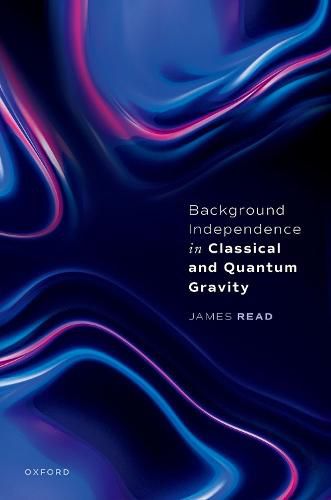Readings Newsletter
Become a Readings Member to make your shopping experience even easier.
Sign in or sign up for free!
You’re not far away from qualifying for FREE standard shipping within Australia
You’ve qualified for FREE standard shipping within Australia
The cart is loading…






It is often claimed that Einstein's magnum opus---his 1915 theory of General Relativity---is distinguished from other theories of space and time in virtue of its background independence. It's also often claimed that background independence is an essential feature of any quantum theory of gravity. But are these claims true? This book aspires to offer definitive answers to both of these questions, by (a) charting the space of possible definitions of background independence, and (b) applying said definitions to various classical and quantum theories of gravity. The outcome, in brief, is as follows: General Relativity is not unique by virtue of its background independence (and, indeed, fails to be background independent on some popular definitions); moreover, the situation in the case of quantum theories of gravity is delicate, because (i) there are viable such theories which (by some accounts, at least) fail to be background independent, but also (ii) theories (e.g. perturbative string theory) which have often been dismissed for (allegedly) being background dependent in fact, on many accounts, are better classified as background independent. In giving these answers in rigorous detail, this book seeks to elevate the standards and generality of future discussions of background independence in the foundations of spacetime theories.
$9.00 standard shipping within Australia
FREE standard shipping within Australia for orders over $100.00
Express & International shipping calculated at checkout
It is often claimed that Einstein's magnum opus---his 1915 theory of General Relativity---is distinguished from other theories of space and time in virtue of its background independence. It's also often claimed that background independence is an essential feature of any quantum theory of gravity. But are these claims true? This book aspires to offer definitive answers to both of these questions, by (a) charting the space of possible definitions of background independence, and (b) applying said definitions to various classical and quantum theories of gravity. The outcome, in brief, is as follows: General Relativity is not unique by virtue of its background independence (and, indeed, fails to be background independent on some popular definitions); moreover, the situation in the case of quantum theories of gravity is delicate, because (i) there are viable such theories which (by some accounts, at least) fail to be background independent, but also (ii) theories (e.g. perturbative string theory) which have often been dismissed for (allegedly) being background dependent in fact, on many accounts, are better classified as background independent. In giving these answers in rigorous detail, this book seeks to elevate the standards and generality of future discussions of background independence in the foundations of spacetime theories.